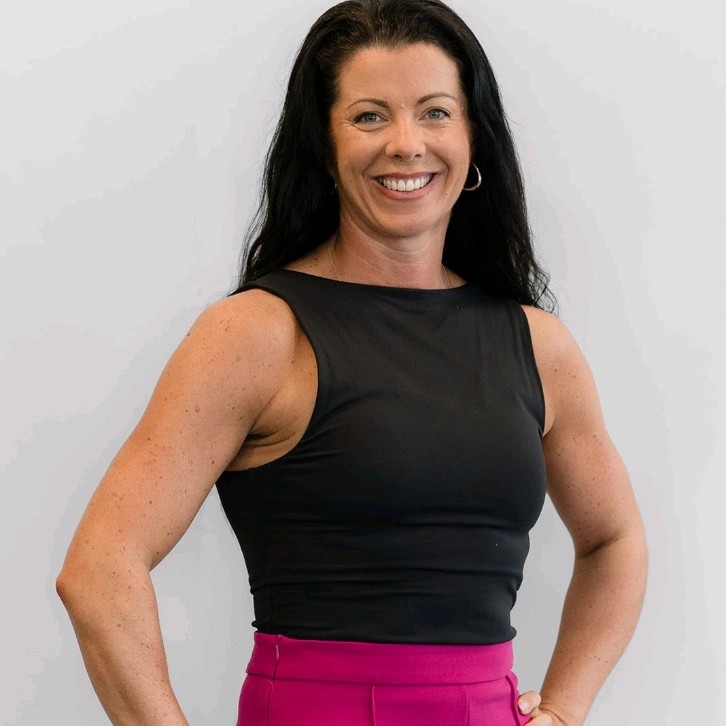
As we look to navigate our way through 2021, the importance of our leaders and their leadership skills, has arguably never been as important. Throughout this edition of Modern Law, we will be gaining the insight of many of the legal sectors’ leading figures. But who can they go to for help in deciding how to lead from the front? Luckily for us, Rosemary Ryan, Co-owner of Represent, is exactly that person…
Tell us a little bit about yourself and how you came to be in your current position? What do Represent do?
I started with a Languages Degree and moved into corporate life, where I joined the Learning and Development team at the end of my graduate training year, realising that I was better with people than excel spread sheets! This led me to take a Psychology degree and from there I became fascinated in why people act as they do and what makes them tick. I later did a Masters in Executive coaching and I still do some development every year, as I think learning is both motivational and incredibly enjoyable whether it is home or business related.
I started Represent Ltd over 20 years ago with my Co-Director, Robert Adam, and we haven’t looked back since. We work primarily with professional services and law firms across the world, helping them to maximise profitability by developing their personal leadership skills and enhancing team performance.
We work with senior partners and associates through a mixture of individual coaching, team coaching and large-scale leadership development programs.
As the legal sector looks to navigate through these unprecedented times, how important are leaders/leadership for firms and service providers alike to survive and prosper?
In some respects, it’s no more important than it’s always been. People join firms because of the leadership, and they also leave firms because of the leadership. Firms will be measured in the future by how they’re supporting and developing their people now.
Those firms that are being flexible and are helping to support people’s well-being – that will go down as a big tick. The firms that are saying, just carry on, meet your target hours, keep going – they’ll be measured on that in the future.
Now is the time for leaders to show their emotional intelligence. It is really important that they don’t forget the junior people within their firm. Anecdotal research is showing that junior lawyers are not necessarily getting the same development that they would have done, if they were sitting at a desk next to someone more senior and listening in to their client conversations and engaging in face-to-face supervision.
You can get a hundred technically good lawyers, but if only ten of them are really good at building relationships, I can guarantee you that they’re the ones that clients will come back to
So, I do feel strongly that firm leaders really have to reach out to their juniors and keep them engaged and included. That’s how they’re going to retain good people. Otherwise, once this pandemic winds down, their juniors will be going to join the firms that believe in investing in their talent.
With that in mind, how should one look to monitor the performance of the people that they lead? Has that become harder due to numerous lockdowns and working from home e.g. lack of human touch?
We’ve been running quite a few workshops on leading remotely and managing remotely. Those people that are doing it successfully, are the ones that are keeping in touch with their teams regularly on a weekly basis. They’re not just doing the Zoom calls to the whole team in one fell swoop, they’re picking up the phone to them individually and actually making sure they’re engaging with their people and adapting their management style to meet the needs of people during these challenging times.
So how do you monitor people working from home?
You have to trust your people. You have to make sure they’re clear on what’s expected of them and then they need feedback. I have to say that in a lot of the individual coaching we’re doing, lawyers are saying they’re not getting any feedback, they’re not being developed and they’re actually feeling quite isolated.
With that in mind, the successful leaders are those that are keeping in touch regularly and making sure they’re giving lots of feedback about how their people are doing. Just because people are working remotely, doesn’t mean that they shouldn’t be developing, having performance conversations, given feedback and all the other positive things that good leadership delivers. This pandemic, as unprecedented and difficult as it may be, is not an excuse to stop leading people with due care and support.
The office will become the ‘go to’ place for energising and educating people, creating inclusivity and protecting culture
Have you seen any positives come out of the pandemic so far for leadership?
The main change that might come out of this pandemic, concerns the older, more senior partners of law firms. They’ve had to learn a lot during this time and this can only be a positive. Many have had to become much more technically literate, whilst others have learnt to trust their people and delegate more liberally because of the fact they can’t tell them what to do every day sitting in the office. It’s about giving people a bit more autonomy, trusting people more and letting people fly a little bit further. The real education has been more for the traditional old-style leaders and partners, rather than the younger ones coming through and this to me, is a positive for changing the leadership culture for the future.
For any of our readers who are looking for new leadership techniques, what can you do to motivate a team during this extremely difficult time where many are juggling home schooling and work?
I spend probably 25% of my time doing individual coaching with partners or senior associates. One of the big themes coming out, is around the balancing act of keeping work and home life functioning in parallel. Younger partners and associates are struggling to meet their hourly targets, provide home schooling and keep some small sense of balance in their working day. Senior partners whose children have flown the nest or are without these challenges need to show empathy for those who are having a tough time and stand in the shoes of their team members from time to time. I am working with some amazing partners who take the time to do this and they are building up loyalty for many years to come. They are leaders who people want to follow, rather than leaders who people have to follow.

We need to look at developing performance from a systemic team perspective rather than purely an individual perspective if we are to maximise the full potential of our talent
Those partners that are open-minded and open to learning from those around them, will be the ones that are successful going forward. More listening is needed and more individual check in’s make a big difference to motivation and inclusion.
It used to be that the idea of working from home as a lawyer was not acceptable and partners liked their associates to be in the office when they were there. Well, that argument is out of the door now because they’ve had to work at home for nearly a year and data is showing that for many firms who are managing their people well, productivity hasn’t gone down and their profitability hasn’t gone down either. So actually, there’s been some really good lessons learnt from the last year about trust and autonomy. As long as you keep the client service absolutely spot on, that’s all that matters.
The other challenge we have is how to maintain and protect the culture and values of the firm when working remotely. As firms get back to a more hybrid arrangement of working, they will need to pay attention to this issue and bring people together for events and gatherings in order to reinforce the culture and values. We used to run big leadership conferences and workshops where people gathered for several days to network, share experiences and create a common culture of learning. Running virtual development workshops may increase skills, but does little to reinforce company culture. The office will become the ‘go to’ place for energising and educating people, creating inclusivity and protecting culture.
I believe you’ve got to be open-minded and you’ve got to be flexible. By moving quickly and being pretty agile, you can be successful in any situation that is thrown at you
As Co-Owner, how would you describe your own leadership style? Has the pandemic altered how you look to lead yourself/ the mentorship you give others?
I think the lovely thing about a small consultancy is that we can be very flexible. We’ve really had to adapt so quickly. 90% of our work was face-to-face before the pandemic and inevitably this went downhill very quickly!
However, within no time at all, we’d managed to transform all of our programs online. We’ve had to be more agile and adaptable and I believe it’s really paid off. We started doing our UK coaching over Zoom within days and indeed much of our global coaching was already virtual.
One of the things we’ve learned during this pandemic is the need to collaborate and learn from others, working in true partnership with our clients. We have learnt and adapted in partnership with some very supportive clients, including creating a global pool of associates to work with our brilliant UK team within a month. By doing this, we could provide our leadership programmes with our brand and approach, whilst delivering it in different languages across both Europe and Asia.
In terms of personal leadership style, I’d say it’s had to be more trusting of our associate team. I have learned so much over the last year from some of them who are much better at using the technology on offer and being creative in our learning methodologies. We have really come on leaps and bounds in that regards, and that’s all been possible from our associate team coming up with lots of great ideas. I believe you’ve got to be open-minded and you’ve got to be flexible. By moving quickly and being pretty agile, you can be successful in any situation that is thrown at you.

One of the things we’ve learned during this pandemic is the need to collaborate and learn from others, working in true partnership with our clients
In the past you have taken part in legal conferences such as the London Law Expo. When things eventually return to normal, are there any subject matters in the pipeline you would be keen to speak about?
Yes, we do a lot of leadership development programs and we do a lot of individual coaching. I feel that when it is possible again, we would be looking to do more in the area of team coaching. In my opinion, law firms have been lacking in their focus on developing the team as an entity.
It’s a sole player game, and they treat people as sole players. Yet, actually, you could have a great partner, but if they don’t have a great team around them and they don’t have a great network of partners around them too, they’re not going to be as successful as they could be. I’ve been doing some development myself in terms of team coaching over the last year and we’re looking to do more and more of it in the future. How do we operate as a team? What are our challenges as a team? These are the questions that you must look to answer together collaboratively.
Working with intact teams to develop them as a cohesive whole is really important and many firms are not looking at performance from a team perspective. We need to look at developing performance from a systemic team perspective, rather than purely from an individual perspective if we are to maximise the full potential of our talent.
How important is it to collaborate with others and accept new ideas as a leader?
Hugely. If there was one message that I would want to get across to a lot of senior lawyers, it’s listen to your junior people and learn from them. It’s the idea of reverse mentoring, of learning from your juniors that there are other ways of doing things and actively seeking other people’s ideas.
A lot of lawyers are trained from school to be the best, to achieve, and they do it on a single basis. I firmly believe their ability to collaborate, network and build really good connections across the firm and across their client sector, is what differentiates the good lawyers from the average. You can get a hundred technically good lawyers, but if only ten of them are really good at building relationships, I can guarantee you that they’re the ones that clients will come back to.
People join firms because of the leadership, and they also leave firms because of the leadership. Firms will be measured in the future by how they’re supporting and developing their people now
Do you have any final advice you would like to give our readers?
Remember the positive things that happen every day because it’s pretty tough at the moment. If you can, try and hold onto the good things and share things with each other. Also, keep your network strong. I think that’s really important to keep in touch with people and ask for help from each other. I feel people are pretty bad at asking for help sometimes. Lastly, try and maintain optimism. We are getting through this and when we do, we’ll look back and learn a lot from it. So, optimism, keeping the positives and keeping your network strong – these are my three pieces of advice to the readers.
Rosemary Ryan | Co-owner | Represent
Read more of our favourite features from Modern Law Magazine here




